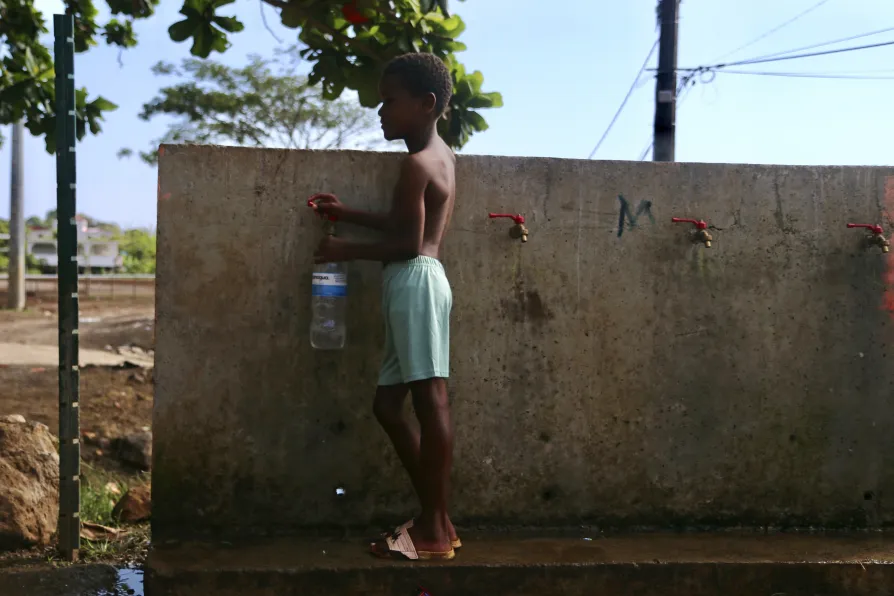One in three children globally live in areas with limited access to water, says the UN

 A boy fills up a bottle at the water fountain in M'tsamoudou, near Bandrele on the French Indian Ocean territory of Mayotte, October 12, 2023
A boy fills up a bottle at the water fountain in M'tsamoudou, near Bandrele on the French Indian Ocean territory of Mayotte, October 12, 2023
ABOUT a third of children globally live in areas with limited access to water, according to a damning new United Nations report published on Monday.
In a supplement to the landmark 2021 Children’s Climate Risk Index, the UN children’s agency Unicef said last year around 739 million children across the globe were exposed to high or extremely high water scarcity.
The report also said that 436 million children live in areas of high or extremely high water vulnerability.
Similar stories

Governments must dramatically slash emissions and support the transition to a renewable future in 2025, UN says













